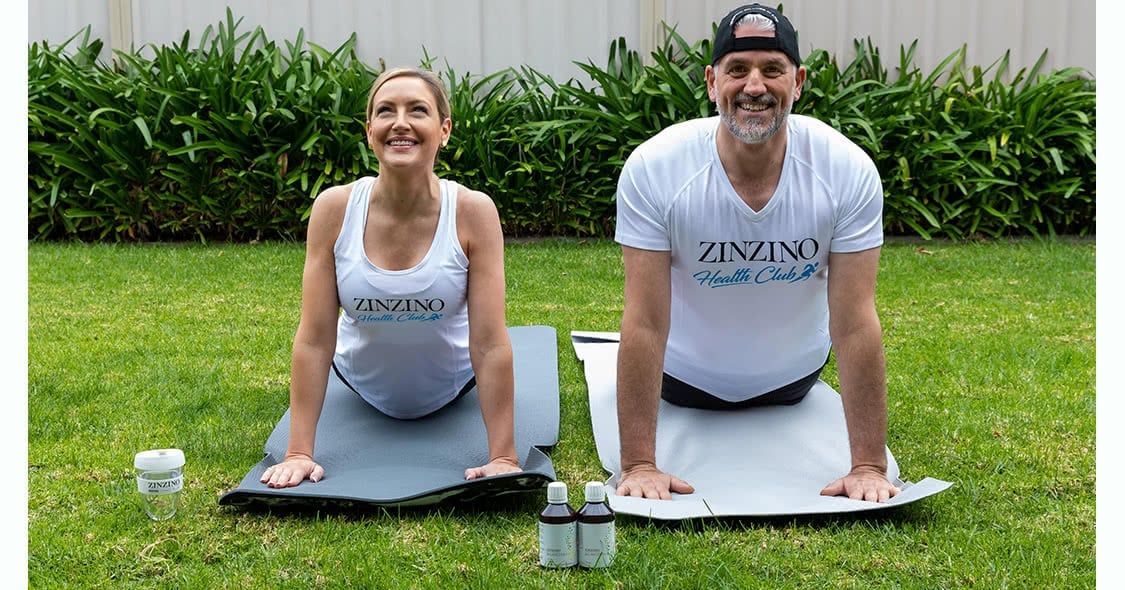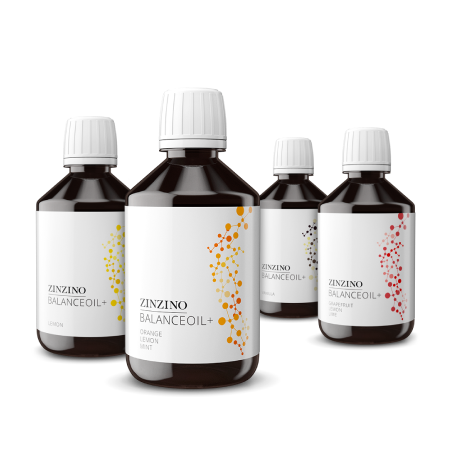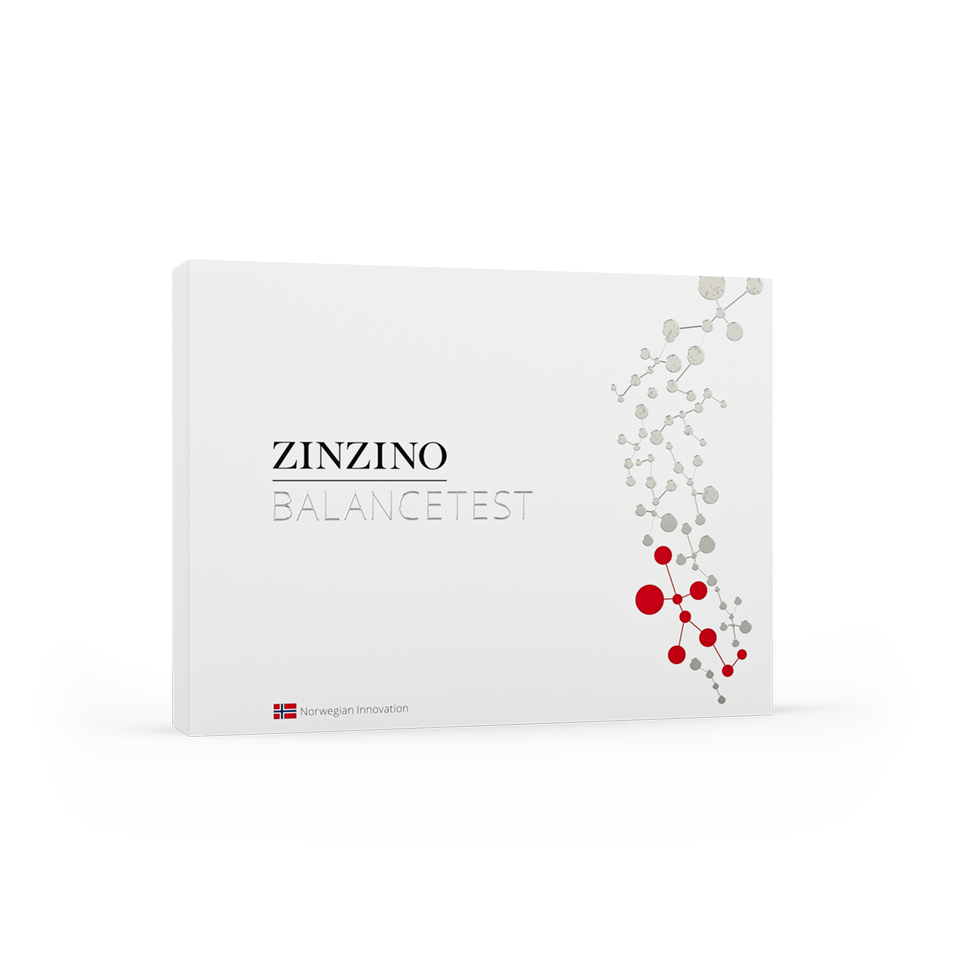Marie-Josephin Forkel
Zinzino Independent Partner
Zapraszamy! Jestem Twoim niezależnym konsultantem i moim celem jest poprowadzenie Cię przez ścieżkę wiodącą do dobrego stanu zdrowia.
Korzyści oleju rybnego i kwasów omega-3 dla ogólnego samopoczucia

Olej rybny jest jednym z najpopularniejszych dostępnych współcześnie suplementów diety. Szczególnie często stosują go osoby, które nie spożywają zbyt dużo owoców morza na co dzień, a także kobiety w ciąży. W związku z tym, że organizm nie potrafi naturalnie wytworzyć niezbędnych kwasów tłuszczowych omega-3, każdy może skorzystać z tych odżywczych suplementów diety.
Olej rybny jest niezbędny
Jak mówi sama nazwa, olej ten jest pozyskiwany z tkanek ryb, bogatych w kwasy omega-3, m.in. EPA, DHA i DPA. Współczesna dieta zachodnia zawiera więcej kwasów omega-6 niż omega-3, co może zniekształcać ważną proporcję dotyczącą kwasów tłuszczowych. Nie sposób wymienić wszystkich korzyści z przyjmowania kwasów omega-3. Są one niezbędne do prawidłowego funkcjonowania ludzkiego organizmu.
Olej rybny ma dobry wpływ na cholesterol i obniżenie ciśnienia krwi
EPA i DHA zawarte w kwasie omega-3 pomagają również zachować odpowiednie poziomy trójglicerydów we krwi1, utrzymać stabilne ciśnienie krwi2 i pracę serca3.
Oprócz zdrowego układu krążenia, kwas omega-3 wspiera prawidłowe funkcjonowanie mózgu4 i zmysłu wzroku5. Ochrona serca, mózgu i wzroku to już wystarczający powód, by spożywać olej rybny. Zinzino BalanceOil+ zapewnia jeszcze więcej korzyści.
BalanceOil+ to naukowo certyfikowany środek z czystego oleju rybnego, oliwy extra virgin z niedojrzałych oliwek oraz naturalnie pozyskiwanej witaminy D3 Ten produkt został opracowany, aby przywrócić równowagę poziomu kwasu omega, dostosować i utrzymać poziom kwasów EPA i DHA oraz zapewnić ochronę komórek przed stresem oksydacyjnym6. To o wiele więcej niż sam olej rybny!
Kwas omega-3 pozytywnie wpływa nie tylko na zdrowie mózgu, serca i komórek
Bierze udział w utrzymaniu odpowiedniego poziomu wapnia we krwi7, pomaga w prawidłowym funkcjonowaniu kości8, mięśni9, zębów10, podziale komórek11i wspomaga odporność12. Kwas oleinowy zapewnia dodatkowe wsparcie serca i pomaga zachować prawidłowy poziom cholesterolu we krwi13.
Poczuj wszystkie 15 korzyści zdrowotnych potwierdzonych przez EFSA dzięki codziennej dawce BalanceOil+ (ustalanej w oparciu o wynik BalanceTest).
Jakość ma znaczenie w przypadku maksymalizacji działania oleju rybnego
Linia Zinzino BalanceOil+ zawiera naturalnie pozyskiwany olej rybny z małych ryb pelagicznych, takich jak sardele, sardynki i makrele, bogatych w kwasy tłuszczowe omega-3 EPA i DHA. Produkt ma certyfikat Friend of the Sea. międzynarodowy certyfikat nadawany produktom i usługom, który świadczy o szacunku i ochronie środowiska morskiego. Oznacza to, że olej rybny jest naturalny, molekularnie przetestowany pod kątem toksyn, aby zagwarantować bezpieczeństwo, świeżość i nieskazitelną czystość. Wszystkie wysokiej jakości czyste suplementy z omega-3 przechodzą proces ulepszania, podczas którego niszczone są nie tylko zanieczyszczenia, ale także polifenole. Te mikroskładniki odżywcze o właściwościach antyoksydacyjnych naturalnie znajdują się w tłustych rybach, gdzie stabilizują oksydację, optymalizują wchłanianie do organizmu i umożliwiają działanie kwasów omega-3 w membranach komórkowych.
Oliwa z oliwek z pierwszego tłoczenia optymalizuje wchłanianie
Polifenole z oliwek zrywanych jeszcze przed sezonem są najbliższe tym znajdującym się w rybach. Zinzino to jedna z pierwszych marek, która wykorzystała te napakowane antyoksydantami składniki do swoich naukowo opracowanych formulacji. Unikalna formuła produktów Zinzino BalanceOil+ to synergiczna mieszanka oparta na 60% czystego oleju pochodzącego z dziko żyjących małych ryb i 40% tłoczonej na zimno oliwy extra virgin zawierającej polifenole z niedojrzałych jeszcze oliwek oraz kwasy omega-9.
Każdy jest inny i poziom absorpcji suplementów omega-3 w dużym stopniu zależy od indywidualnych czynników, takich jak waga, kwasy żołądkowe, genotyp, a nawet niektóre alergie. Zinzino BalanceTest pozwoli Ci poznać swój profil kwasów tłuszczowych omega-3 i będzie Twoim drogowskazem przy wyborze odpowiednich dla Ciebie suplementów. Zdecyduj się na suplement, który tak jak BalanceOil+ jest bezpieczny, naturalny i dostosowany do Twojego indywidualnego profilu tłuszczowego.
*Te twierdzenia nie zostały ocenione przez Agencję Żywności i Leków (Food and Drug Administration, FDA). Ten produkt nie jest przeznaczony do diagnozowania i leczenia chorób ani zapobiegania im.
1. DHA and EPA contribute to the normal function of the heart
DHA and EPA contribute to the normal function of the heart. The claim may be used only for food which is at least a source of EPA and DHA as referred to in the claim SOURCE OF Omega-3 FATTY ACIDS as listed in the Annex to Regulation (EC) No 1924/2006. In order to bear the claim, information shall be given to the consumer that the beneficial effect is obtained with a daily intake of 250 mg of EPA and DHA.
2. DHA and EPA contribute to the maintenance of normal blood
DHA and EPA contribute to the maintenance of normal blood triglyceride levels. The claim may be used only for food which provides a daily intake of 2 g of EPA and DHA. In order to bear the claim, information shall be given to the consumer that the beneficial effect is obtained with a daily intake of 2 g of EPA and DHA. When the claim is used on food supplements and/or fortified foods, infor- mation shall also be given to consumers not to exceed a supplemental daily intake of 5 g of EPA and DHA combined. DHA contributes to the maintenance of normal blood triglyceride levels. The claim may be used only for food which provides a daily intake of 2 g of DHA and which contains DHA in combination with eicosapentaenoic acid (EPA). In order to bear the claim, information shall be given to the consumer that the beneficial effect is obtained with a daily intake of 2 g of DHA. When the claim is used on food supplements and/or fortified foods, information shall also be given to consumers not to exceed a supplemental daily intake of 5 g of EPA and DHA combined.
3. DHA and EPA contribute to the maintenance of normal blood pressure
DHA and EPA contribute to the maintenance of normal blood pressure. The claim may be used only for food which provides a daily intake of 3 g of EPA and DHA. In order to bear the claim, information shall be given to the consumer that the beneficial effect is obtained with a daily intake of 3 g of EPA and DHA. When the claim is used on food supplements and/or fortified foods, information shall also be given to consumers not to exceed a supplemental daily intake of 5 g of EPA and DHA combined.
4. DHA contributes to the maintenance of normal brain
DHA contributes to the maintenance of normal brain function. The claim may be used only for food which contains at least 40 mg of DHA per 100 g and per 100 kcal. In order to bear the claim, information shall be given to the consumer that the beneficial effect is obtained with a daily intake of 250 mg of DHA. Docosahexaenoic acid (DHA) maternal intake contributes to the normal brain development of the fetus and breastfed infants. Information shall be given to pregnant and lactating women that the beneficial effect is obtained with a daily intake of 200 mg of DHA in addition to the recommended daily intake of Omega-3 fatty acids for adults, i.e. 250 mg DHA and EPA. The claim may be used only for food which provides a daily intake of at least 200 mg DHA.
5. DHA contributes to the maintenance of normal vision
DHA contributes to the maintenance of normal vision. The claim may be used only for food which contains at least 40 mg of DHA per 100 g and per 100 kcal. In order to bear the claim, information shall be given to the consumer that the beneficial effect is obtained with a daily intake of 250 mg of DHA. Docosahexaenoic acid (DHA) intake contributes to the normal visual development of infants up to 12 months of age. Information shall be given to the consumer that the beneficial effect is obtained with a daily intake of 100 mg of DHA. When the claim is used on follow-on formula, the food shall contain at least 0.3% of the total fatty acids as DHA.
6. Olive oil polyphenols
Olive oil polyphenols contribute to the protection of blood lipids from oxidative stress. Replacing saturated fats in the diet with unsaturated fats contributes to the maintenance of normal blood cholesterol levels. Oleic acid is an unsaturated fat. The claim may be used only for olive oil which contains at least 5 mg of hydroxytyrosol and its derivatives (e.g. oleuropein complex and tyrosol) per 20 g of olive oil. In order to bear the claim, information shall be given to the consumer that the beneficial effect is obtained with a daily intake of 20 g of olive oil.
13. ALA contributes to normal blood cholesterol levels
ALA contributes to the maintenance of normal blood cholesterol levels. The claim may be used only for food which is at least a source of ALA as referred to in the claim SOURCE OF OMEGA 3 FATTY ACIDS as listed in the Annex to Regulation (EC) No 1924/2006. Information shall be given to the consumer that the beneficial effect is obtained with a daily intake of 2 g of ALA.




Udostępnij tę stronę
Lub skopiuj link